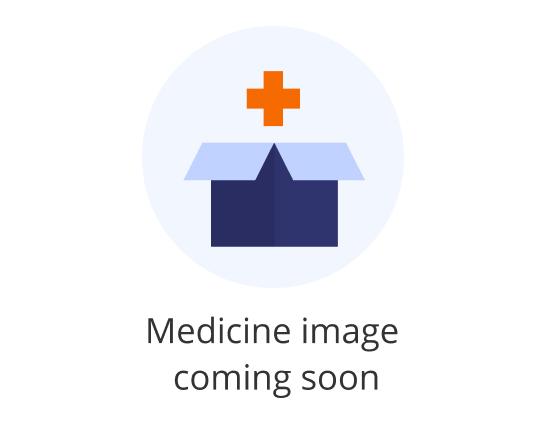Ibudilast for ALS: When is FDA approval coming (and how not to wait)?
Last updated: 19 November 2024

You can legally access new medicines, even if they are not approved in your country.
Learn howKetas (ibudilast) is a promising medication for ALS, currently undergoing active clinical trials in the USA., Europe, and beyond. While it's not yet approved for ALS, it has earned FDA fast track designation, signaling progress toward potential FDA approval.
Here's what you need to know about ibudilast’s approval timeline and how you can access it before it’s officially available in your country.
What is ibudilast used for?
Ibudilast (also known as Ketas, AV-411, or MN-166) is an anti-inflammatory medicine primarily used in Japan and South Korea. It was originally developed to treat asthma and post-stroke complications. However, its anti-inflammatory and neuroprotective properties have sparked research into its potential for treating neurodegenerative diseases, including multiple sclerosis (MS) and ALS 1.
How does ibudilast work for ALS?
Ibudilast (Ketas) could work for ALS by reducing inflammation in the brain and nervous system. It blocks certain enzymes and molecules (like PDE-4, PDE-10, and MIF) that promote inflammation, which is a key factor in ALS. Additionally, it helps protect nerve cells and supports their survival, growth, and function. Ibudilast also reduces the activity of glial cells, which are involved in neurological damage 1.
Where is ibudilast approved?
As of November 2024, ibudilast is only approved in Japan and South Korea. And even there, it's only approved for treating asthma and cerebrovascular conditions.
It is not approved anywhere yet as a treatment for ALS. However, this may be a matter of time, given its clinical trial results.
Is ibudilast FDA approved?
Not as of November 2024. However, ibudilast has received Fast Track and Orphan Drug Designations from the U.S. Food and Drug Administration (FDA) for ALS 2. If ongoing clinical trials show positive results, ibudilast may be getting an FDA approval soon. Fast track approvals can take as little as sixty days as soon as a new medicine approval application is submitted.
Is ibudilast EMA approved?
As of November 2024, not yet. Ibudilast was granted Orphan Medicine status by the EMA in 2016, meaning it could potentially go through a shorter approval process once a marketing authorization application is submitted 3.
Is ibudilast approved in the UK?
Similarly to its FDA and EMA approval, ibudilast's MHRA approval is also not a fact yet. As of November 2024, there is no marketing authorization application submitted for the medicine. However, this doesn't mean the UK will take longer to approve the medicine. As soon as ibudilast gets FDA or EMA approval, the MHRA may decide to immediately approve the medicine for use in the UK. This is possible in accordance with post-Brexit regulations.
What are the clinical trial results of ibudilast in ALS?
Ketas (ibudilast/MN-166) has been involved in a number of clinical trials focusing on ALS. Some of the notable outcomes are listed below.
IBU-ALS-1201 (Phase 2)
In this trial, ibudilast together with riluzole showed promising results in ALS patients.
When added to riluzole, ibudilast improved functional activity, quality of life, and muscle strength. The study revealed that significantly more participants treated with ibudilast either stabilized or improved in functional measures (ALSFRS-R) compared to the placebo group. Positive effects were observed particularly in early ALS patients, including those with bulbar or upper limb onset 4.
COMBAT-ALS (Phase 2b/3)
This ongoing trial aims to evaluate Ketas's efficacy, safety, and tolerability for patients with ALS over 12 months, followed by a 6-month extension phase. The estimated completion date of the trial is December 2026 5. It is expected that the outcome of the COMBAT-ALS trial will be pivotal for a potential FDA approval.
Can your doctor already prescribe ibudilast for ALS?
Technically, yes. He or she could make this decision on the basis of existing clinical trial results. Or, following a consultation with other doctors who have used the medicine in their clinical practice.
When a doctor prescribes a medicine for treating a disease it's not approved for (yet), that's called off-label use.
How to get ibudilast before it’s available in your country
If Ketas (ibudilast) is not approved or available in your country, there are still ways to get it without having to wait. One option is to join an ongoing clinical trial. Another option is to buy Ketas immediately for your personal use.
Join a clinical trial
If you meet the criteria, you may be able to participate in the COMBAT-ALS trial that's recruiting patients in the USA and Canada. Not a match? There may be other trials that could offer access to ibudilast under controlled conditions and contribute to its regulatory approval process. Some of them may also be open to international participants. Check out ClinicalTrials.gov for a full list.
Buy ibudilast as a Named Patient
If your treatment can't wait, and a clinical trial is no option, you can get ibudilast immediately as a Named Patient. The Named Patient regulation is active worldwide and allows patients to buy and import medicines for personal use, when these are not available locally.
If your doctor has already prescribed ibudilast for your ALS, share your prescription with our expert Medicine Access team and we will help you get the medicine you need, wherever you are.
References:
- MN-166 (Ibudilast). ALS News Today, Accessed 19 November 2024.
- Melão, Alice. FDA Approves Pivotal ALS Phase 2b/3 Trial Testing Ibudilast. ALS News Today, 17 April 2019.
- Community Register of orphan medicinal products. European Commission. Accessed 19 November 2024.
- Ibudilast (MN-166) in Subjects With Amyotrophic Lateral Sclerosis (ALS) (IBU-ALS-1201). ClinicalTrials.gov, Accessed 19 November 2024.
- Evaluation of MN-166 (ibudilast) for 12 Months Followed by an Open-label Extension for 6 Months in Patients with ALS (COMBAT-ALS). ClinicalTrials.gov, Accessed 19 November 2024.





